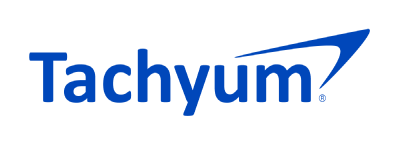Media Center / プレスリリース / 2020 /
Tachyum Closes Milestone Year for Development of Prodigy Universal Processor
· 読むのに 5 分
Chip FPGA prototypes and demonstrations among highlights
LAS VEGAS, Nevada, December 29, 2020 – Tachyum™ Inc. celebrates another year of milestones for the company and its Prodigy Universal Processor development, including several demonstrations, design achievements, and other proof-of-product successes. Its progress in 2020 has positioned Prodigy for volume manufacturing and worldwide commercial distribution in 2021.
Its most significant accomplishment on the path to market-readiness was the recent release of a fully functional FPGA chip prototype, the last step before tape-out when final design specs are submitted for fabrication. Tachyum will have 98 percent of the complete Prodigy chip layout, the verified detailed physical design of the silicon area, by December 31.
Throughout the year Tachyum proved Prodigy’s capabilities in demonstrations such as software emulation testing across x86, ARM and RISC-V binary environments, running a web server application on Prodigy using a mix of x86 and its native code, and validating critical tools like Apache. To further show Prodigy users can deploy a broad spectrum of applications out of the box, Tachyum demonstrated its AI software stack in August, resulting in speeds over 2X faster than other solutions. Testing and verification is ongoing, with longer and longer random tests. Achieved whole path roundtrip from I$/D$ miss, L2$ miss, directory, mesh, DRAM controller, DDR5 DIMMS, back to core with correct data.
“While 2020 has been challenging in many ways, and a time of global uncertainty, our teams in both the United States and Europe have resolutely met multiple goals on the road to commercial success of the Prodigy Universal Processor,” said Dr. Radoslav Danilak, Tachyum founder and CEO. “Every one of our employees, advisors, and stakeholders shares in these achievements and can be confident that we are prepared to change the performance, power, footprint, and economics of data center and AI computing in 2021.”
Along with its technical milestones, Tachyum expanded its leadership with the addition of Melvin Cordova as advisory board member of its newly created Tachyum Government Corporation, created to service the unique needs of defense and intelligence customers; Stephen Dilbeck as senior director, system on chip; and Lt. Gen. (Ret.) Richard Zahner as a member of Tachyum’s Advisory Board. Key promotions included Elena Zokhidova, elevated to VP of finance, and Krishna Thatipelli to senior director of hardware design engineering.
The company was welcomed into a number of industry associations to advance the state of technical collaboration and best practices: the Open Compute Project, two JEDEC committees developing standards for solid state memories and DRAM modules, the UEFI Forum, the OpenBMC Project, and Trusted Computing Group.
In addition to manufacturing and distribution of Prodigy in 2021, the company looks forward to its FPGA-based Prodigy emulator boards arriving in-house in January, a formal product launch, and reference designs. Tachyum is also eagerly awaiting the unveiling of a Prodigy-equipped AI/HPC supercomputer project, the infrastructure of which is already being prepared for Tachyum’s first hardware.
Tachyum’s Prodigy can run HPC applications, convolutional AI, explainable AI, general AI, bio AI, and spiking neural networks, plus normal data center workloads, on a single homogeneous processor platform, using existing and standard programming models. Without Prodigy, data center customers must use a combination of CPUs, GPUs, TPUs and other accelerators for these different workloads, creating inefficiency, expense, and the complexity of maintaining separate hardware infrastructures. Using specific hardware dedicated to each type of workload (e.g. data center, AI, HPC), results in the significant underutilization of hardware resources, and more challenging programming, support, and maintenance environments. Prodigy’s ability to seamlessly switch among these various workloads dramatically changes the competitive landscape and drastically improves data center economics.
Prodigy significantly improves computational performance, energy consumption, hardware (server) utilization and space requirements, compared to existing processor chips provisioned in hyperscale data centers today. As a universal processor, it not only runs CPU, AI and HPC workloads, but it also runs legacy x86, ARM and RISC-V binaries in addition to its native Prodigy code. And, with a single, highly efficient processor architecture, Prodigy delivers industry-leading performance across data center, AI, and HPC workloads, outperforming the fastest Xeon processors at 10x lower power on data center workloads, as well as outperforming NVIDIA’s fastest GPU on HPC, AI training and inference. The 125 HPC Prodigy racks can deliver a 32 tensor EXAFLOPS. Prodigy’s 3X lower cost per MIPS and 10X lower power translates to a 4X lower data center Total Cost of Ownership (TCO), enabling billions of dollars of savings for hyperscalers. Since Prodigy is the world’s only processor that can switch between data center, AI and HPC workloads, unused servers can be used as CAPEX-free AI or HPC cloud resources, because the servers have already been provisioned to handle peak customer demand. It will also allow Edge developers for IoT to exploit its low power/high performance, along with its simple programming model, to deliver energy efficient, high-performance AI to the edge.
Follow Tachyum
https://www.linkedin.com/company/tachyum
https://www.facebook.com/Tachyum/
About Tachyum
Tachyum is disrupting data centers, HPC and AI markets by providing universality, industry leading performance, cost and power, while enabling data centers that are more powerful than the human brain. Tachyum, co-founded by Dr. Radoslav Danilak, and its flagship product Prodigy, the world’s first and only universal processor, begins production in 2021. Prodigy brings unprecedented value targeting a $50B market that is growing at 20% per year. With data centers currently consuming over 3% of the planet’s electricity, and 10% by 2025, low power Prodigy is critical for the continued doubling of worldwide data center capacity every 4 years. Tachyum has offices in the USA and Slovakia, EU.

